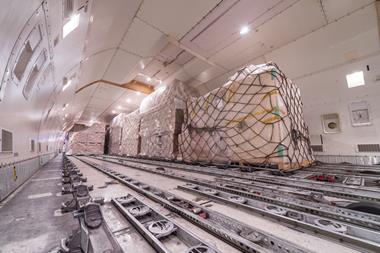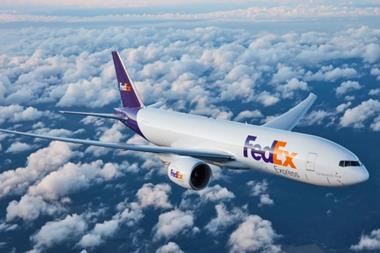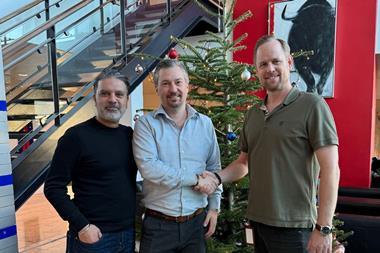As the trade tariff dispute continues, a senior FedEx executive has warned that governments worldwide should not let "the desire for perfect trade agreements get in the way of better and stronger partnerships that create more opportunity".
Bert Nappier, president of FedEx Express Europe and chief executive of TNT, expresses his opinions in an online interview which can be accessed below.
Says Nappier: "History has demonstrated that people have always wanted to travel and trade and doing so has propelled global growth and lifted millions out of poverty. Over the last 50 years, the global population has more than doubled. At the same time, the extreme poverty rate has fallen from 50% to 9%. Trade has played a vital role in this achievement.
"When people are connected to greater possibilities through trade, businesses grow, people thrive and communities flourish. Conversely, as seen during The Great Depression of the 1920s and 1930s, household incomes were negatively impacted and quality of life suffered, fueled in part by newly erected trade barriers.
"The current tension in global trading relationships pushes us to consider whether we limit the possibilities for trade or whether we strive for balanced trading partnerships that unlock enormous economic value. We should not let the desire for perfect trade agreements get in the way of better and stronger partnerships that create more opportunity. Trade will continue because people want it. People want to connect with each other.
"Today, the desire to trade and to connect people and communities is stronger than ever. With our constantly growing digital economy, almost anyone with a mobile phone can reach new markets in nanoseconds, funneling tremendous digital connectivity into more buying power, more economic growth, and a higher standard of living."
He continues: "This has never been more important than today as the global population is growing. Society as a whole is getting wealthier and increasingly interconnected. Digital networks connect us to people across the globe. Physical networks connect countries, companies, and individuals.
"The two are increasingly merging: e-commerce and logistics are expanding; goods purchased online need to arrive physically at a destination. Our global markets enable the human instinct to flourish, to move forward, trade, travel and progress.
"Market access and e-commerce are changing the world of trade. Global retail e-commerce sales are expected to exceed $4trn by 2020. While everyone benefits when it is easier to bring new products and ideas into the global market, this is particularly true for small and medium-sized enterprises.
"This is being recognized more and more at a governmental level. The European Commission considers small and medium-sized enterprises as well as entrepreneurship vital to economic growth, innovation, job creation, and social integration.
"Many “large” businesses started as small businesses, and access to global markets has driven their continued success and growth."
Nappier concludes: "Trade makes us more prosperous. The global economy has become highly sophisticated and relies on far-reaching supply chains. Improvements such as cross-border data flows and global supply chains help importers and exporters around the globe.
"That’s why significant new initiatives are gaining pace, such as the EU-Japan Economic Partnership Agreement. At the same time, trade is being challenged in different countries across the globe. Implementing trade barriers is taking a step back and makes importing and exporting less competitive.
"We believe that trade, both between European nations and internationally, will continue to be central to ensuring prosperity and quality of life and these goals should be supported by balanced, compromised agreements on trade."










